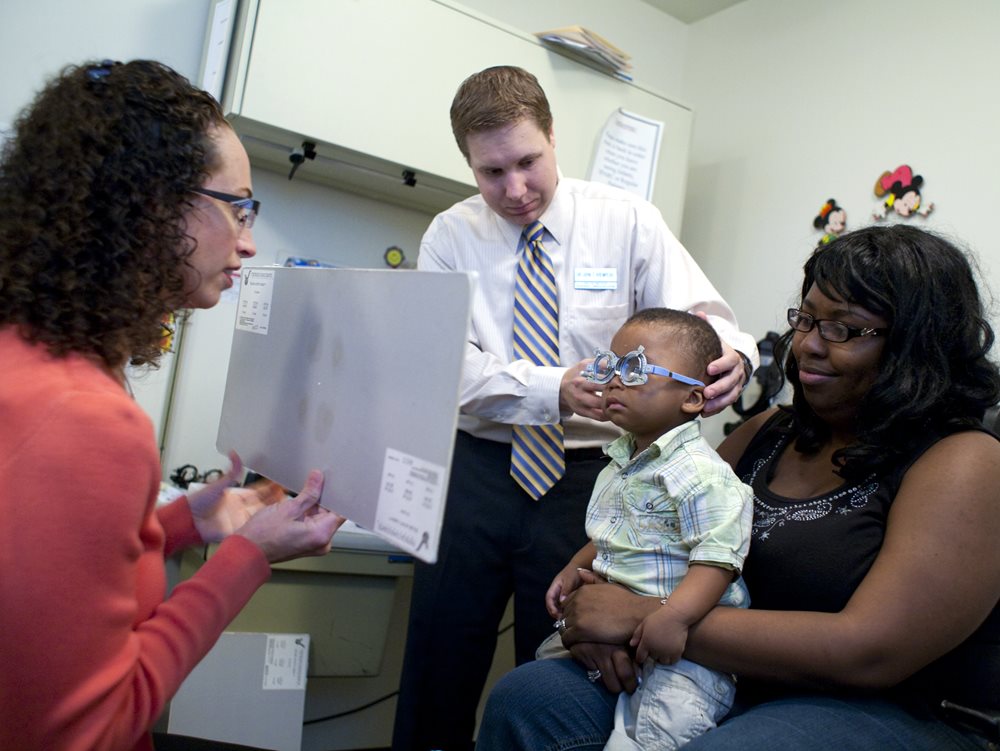InfantSEE Program Celebrates 15 Years of Infant Vision Care
 Launched in 2005, InfantSEE a public health program managed by Optometry Cares – The American Optometric Association’s Foundation is celebrating 15 years of service, providing assessments to over 150,000 infants. InfantSEE optometrists provide comprehensive infant eye assessments between six and 12-months of age free of charge regardless of family income or access to insurance coverage. The Eye Institute (TEI) is a proud participating provider of this national program.
Launched in 2005, InfantSEE a public health program managed by Optometry Cares – The American Optometric Association’s Foundation is celebrating 15 years of service, providing assessments to over 150,000 infants. InfantSEE optometrists provide comprehensive infant eye assessments between six and 12-months of age free of charge regardless of family income or access to insurance coverage. The Eye Institute (TEI) is a proud participating provider of this national program.
Even if no eye or vision problems are apparent, at about age six months, you should take your baby to an optometrist for his or her first thorough eye examination. The earlier vision problems are detected, the better for growth and development. Many eye problems arise from conditions that can be identified by an eye doctor in the infant's first year.
| AGE |
VISION |
|---|---|
| At Birth | Focus on objects less than a foot away, such as mom’s face when nursing. |
| By 3Months | Follows moving objects and reaches for things. It is normal for a child’s eyes to not always track together for first six to eight weeks. |
| By 6 Months | Both eyes should focus equally; brainwaves can demonstrate the ability to see 20/20 detail. Eye/body coordination skills develop. |
| By 9 Months | Eye contact begins to replace physical contact. Eye/body coordination skills develop further. |
| By 12 Months | Uses both eyes to judge distance. |

Babies learn to see over a period of time, much like they learn to walk and talk. They are not born with all the visual abilities they need in life. The ability to focus their eyes, move them accurately, and use them together as a team is learned. They also need to learn how to use the visual information the eyes send to their brain in order to understand the world around them and interact with it appropriately.
Eye and vision problems in infants can cause developmental delays. It is important to detect any problems early to ensure babies have the opportunity to develop the visual abilities they need to grow and learn.
The right treatment and care for your child’s vision is crucial to their development. Untreated impairments can lead to many issues involved in learning and permanent eye damage. For more information or to schedule an appointment with one of TEI’s pediatric optometrists call 215.276.6111.